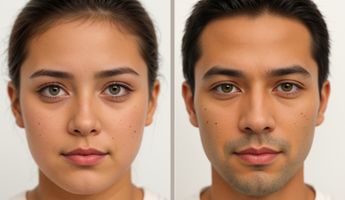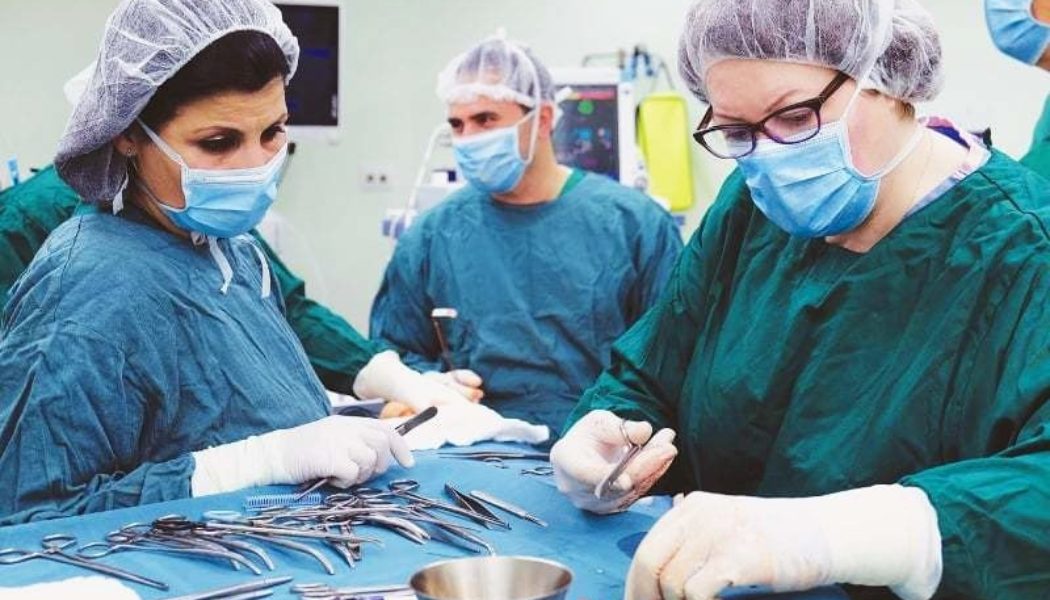Sex Reassignment Surgery (Female To Male) in Taiwan
Search and Compare the Best Clinics and Doctors at the Lowest Prices for Sex Reassignment Surgery (Female To Male) in Taiwan

Find the best clinics for Sex Reassignment Surgery (Female To Male) in Taiwan
No clinics available
Thailand offers the best prices Worldwide
Price: $ 556

- Home
- Taiwan
Compare Before & After Photos of _procedure_photos.phpSex Reassignment Surgery (Female To Male)


Half-side view


Front view


Half-side view


Front view


Front view


Front view


Front view


Front view
WHY US?
At Medijump, we're making medical easy. You can search, compare, discuss, and book your medical all in one place. We open the door to the best medical providers worldwide, saving you time and energy along the way, and it's all for FREE, no hidden fees, and no price markups guaranteed. So what are you waiting for?

Free

Best Price

Widest Selection

Risk-Free
What you need to know about Sex Reassignment Surgery (Female To Male) in Taiwan

Some people are born male and some are born female. While there are some people who are transgender, whose gender identity does not match their assigned sex. Sex change surgery, also known as gender reassignment surgery (GRS) or sex reassignment surgery (SRS) is there to help these people. This is a surgical procedure that changes the sex of a person. It changes a transgender person’s physical appearance according to there identified gender. It treats gender dysphoria in these people. This includes both feminization and masculinization surgeries. In masculinization surgery, there are two domains:
- Top surgery
- Bottom surgery.
In top surgery, mastectomy is performed to remove the breasts and give your chest a more male-like contour. Bottom surgery involves increasing the length of the clitoris which is called metoidioplasty, production of a penis, and scrotum which are known as phalloplasty and scrotoplasty respectively, and removal of the uterus that is a hysterectomy. This surgery is not for everyone. A number of things are considered before opting for surgery. However, normal people with assigned gender can also go for this if they want to.
Before the operation, your assigned sex does not correspond to your gender identity. You suffer from gender dysphoria. You feel uncomfortable in your skin. However; after the surgery, you are a person of your desired sex. You are converted from a female to a male.
What is the cost of Sex Reassignment Surgery (Female To Male) in Taiwan?
Like any intricate healthcare process, the price for undergoing Sex Reassignment Surgery (Female To Male) is not a fixed figure in Taiwan. The final tally significantly sways due to issues like the patient's comprehensive health status, distinct surgical necessities, and the operating surgeon's level of proficiency. It's vital, too, to factor in the cost of post-procedure care, prescribed medicines, and extra treatments, all of which substantially contribute to the total expenditure.
Moreover, distinct clinics situated in Taiwan might provide an array of payment structures or offer financial aid alternatives. It's advisable to undertake thorough investigations or reach out to prospective clinics directly to obtain a precise cost prediction.
What does a Sex Reassignment Surgery (Female To Male) Procedure Involve?
Anesthesia is given to ensure that the patient does not suffer from pain during the surgery. Top and bottom surgeries are performed differently.
-
Mastectomy: It is performed in two ways. In one method, an incision is given around the areola and excessive fat and breast tissue are removed through it. The skin is left as it is for a year. It retracts in this period of time. This method leaves prominent scars. In the other method, excess skin is also removed along with the tissue and fat. This leaves fewer scars. After this, male-like the contour of the chest is obtained.
In the other step, female reproductive organs that are present inside your body are removed.
-
Hysterectomy: Total Hysterectomy is the removal of uterus and cervix. Another surgery, bilateral salpingo-oophorectomy (BSO) is performed to remove fallopian tubes. In this way, the entire female reproductive system is eliminated from the body.
After this, procedures for the construction of male reproductive organs begin. They include,
- Metoidioplasty: Androgenic hormones are given to increase the length of the clitoris. Length is increased to almost 1.6 to 2 inches.
- Phalloplasty: It is performed to create a penis or to increase the length of it. It can be done in 4 ways. All of these work on the same principle. A flap of skin is taken from a donor site of the body such as an arm or abdomen to make a penis out if it. It is joined to the urethra. This is the most complicated step of GRS. An erectile prosthesis is inserted into the penis to achieve an erection.
- Scrotoplasty: Scrotum is produced from labia majora and prosthetic testes are inserted into it.
How Long Should I Stay in Taiwan for a Sex Reassignment Surgery (Female To Male) Procedure?
It is a long procedure involving a number of surgeries. There is top surgery and bottom surgery. Mastectomy takes 2 to 3 hours in the operation theatre. While bottom surgery requires more time. It takes 8 to 10 hours for a female to male GRS. You should plan to stay in the area for at least 14 days after your Procedure, During this duration, your health conditions are monitored regularly and your stitches are removed after 10 to 14 days. You can go home when allowed to by your physician.
What's the Recovery Time for Sex Reassignment Surgery (Female To Male) Procedures in Taiwan?
You will have to take 2 weeks off work. After 2 weeks, you can start a light activity and can go back to office work. A Patient will need more time to get back to physical work. You can start strenuous activity 4 to 6 weeks after bottom surgery. Pain killers are given in this period to deal with moderate pain. Scars take some time to fade away. It can take years after the surgery to settle both physically and psychologically.
What sort of Aftercare is Required for Sex Reassignment Surgery (Female To Male) Procedures in Taiwan?
Following points should be considered to look after you post-surgery:
- Go for regular check-ups.
- Take your medicines as and when prescribed by the doctor.
- Live with someone who takes care of you while you recover.
- Abstain from sexual activity till allowed by your doctor.
- Do not take a bath or shower with bandages intact. It can cause infection.
- Avoid strenuous exercise in the early few days after surgery.
- Do not lift heavy objects; it puts pressure on your stitches.
- Avoid excessive movement. Take a rest.
What's the Success Rate of Sex Reassignment Surgery (Female To Male) Procedures in Taiwan?
The success rate of Sex Reassignment Surgery (Female To Male) within Taiwan depends on a spectrum of elements. Such factors encompass the proficiency and prior expertise of the surgical unit, the comprehensive health condition of the person, their mental readiness, and compliance with the suggested after-treatment attention. An abundance of research has pointed out that a majority of individuals who choose Sex Reassignment Surgery (Female To Male) acknowledge a marked enhancement in their lifestyle quality, elevated mental health, and a noteworthy contentment level with the physical transformations.
According to a study, 97% of the people who went through this surgery found their results satisfactory. You need to be sure before opting for it, as it is a lifetime decision. GRS is mainly for the treatment of dysphoric and transgender people.
Are there Alternatives to Sex Reassignment Surgery (Female To Male) Procedures in Taiwan?
The following are some alternatives to sex reassignment surgery:
- Hormone replacement therapy: this therapy aids in changing your secondary sex characteristics according to your desired sex. In the case of female to male sex change, testosterone is given. This induces hair growth and coarseness of voice. It reduces breast growth and changes in fat distribution in your body. It also stops menstruation.
- Altering physical appearance: you can alter your physical appearance, your dressing, your hair, your makeup in accordance with your desired sex. Do regular exercises to build up muscle mass which will make you look like a male.
- Psychological counseling: it will make you handle your personality. Gender reassignment surgery cannot be reversed. Therefore, you should make your decision wisely.
- Cosmetic surgery: it is a wide field covering a number of domains. It can alter your facial features, your body fat, your waist, your stomach, your chest to transform you into your desired gender. You can go for liposuction, mastectomy, Botox, fillers, Rhinoplasty, etc.
All of the methods, mentioned above are not permanent but are helpful. For permanent change, you have to go for sex reassignment surgery.
What Should You Expect Before and After the Procedure
Prior to initiating the Sex Reassignment Surgery (Female To Male), it is necessary to ensure each individual undergoes thorough psychological analysis and counseling. These checks serve to affirm the patient's emotional readiness and ability to cope with the aftermath of the procedure. In addition to mental health evaluations, multiple medical assessments are implemented to inspect their overall health state. Recognizing any pre-existing health issues is of utmost importance as they can potentially impact the result of the surgery. Regularly scheduled consultations with knowledgeable healthcare professionals are fundamental to this process. These meetings will entail in-depth explanations and discussions to help formulate a holistic understanding of the entire procedure and its ensuing effects.
After the execution of the surgical procedure, there's a need for mental readiness for an extensive recovery period. This stage typically demands diligent post-procedure care and major lifestyle adjustments. Surgical recovery isn't typically a swift process - it's a path that entails physical changes and lifestyle adaptations, necessitating a period of adjustment for the patient. The adoption of healthy habits becomes particularly important during this period. Activities like regular physical activity, adhering to a nutritious diet, and incorporating stress-relief practices are proven to carry several benefits. Moreover, in addition to the emphasis on physical recuperation, mental health should also be prioritized equally.
What are Potential Risks of Sex Reassignment Surgery (Female To Male)?
Each surgical procedure comes with inherent risks and potential complications, including Sex Reassignment Surgery (Female To Male). These might encompass general surgical risks such as infection, bleeding, or adverse reactions to anesthetic drugs. Specific to Sex Reassignment Surgery (Female To Male), there may also be healing-related risks, which could result in necrosis or lackluster cosmetic outcomes. Educating oneself about the possible complications of surgical procedures is beneficial for better preparation.
Additionally, extended exposure to hormonal treatment might escalate the risk of cardiovascular ailments or osteoporosis. There could also be mental health concerns such as depression or anxiety, which may spring from society's responses or personal adaptation to a new identity. Frequent consultations with a healthcare professional are essential to keep track of and mitigate any possible risks or complications.
Whilst the information presented here has been accurately sourced and verified by a medical professional for its accuracy, it is still advised to consult with your doctor before pursuing a medical treatment at one of the listed medical providers
No Time?
Tell us what you're looking for and we'll reachout to the top clinics all at once
Enquire Now

Popular Procedures in Taiwan
Prices Start From $497

Prices Start From $1,552

Prices Start From $500

Prices Start From $1,000

Recommended Medical Centers in Taiwan for procedures similar to Sex Reassignment Surgery (Female To Male)

- Interpreter services
- Translation service
- Religious facilities
- Medical records transfer
- Medical travel insurance
- Health insurance coordination
- TV in the room
- Safe in the room
- Phone in the room
- Private rooms for patients available

- Interpreter services
- Translation service
- Religious facilities
- Medical records transfer
- Medical travel insurance
- Health insurance coordination
- TV in the room
- Safe in the room
- Phone in the room
- Private rooms for patients available

- Interpreter services
- Translation service
- Religious facilities
- Medical records transfer
- Medical travel insurance
- Health insurance coordination
- TV in the room
- Safe in the room
- Phone in the room
- Private rooms for patients available

- Interpreter services
- Translation service
- Religious facilities
- Medical records transfer
- Medical travel insurance
- Health insurance coordination
- TV in the room
- Safe in the room
- Phone in the room
- Private rooms for patients available

- Interpreter services
- Translation service
- Religious facilities
- Medical records transfer
- Medical travel insurance
- Health insurance coordination
- TV in the room
- Safe in the room
- Phone in the room
- Private rooms for patients available
Sex Reassignment Surgery (Female To Male) in and around Taiwan
About Taiwan
Whilst still a part of the Republic of China, the small island of Taiwan maintains a wealth of ancient Chinese culture and traditions mixed with modern-day Western inspirations. With its food-loving locals and award-winning whiskeys, Taiwan is a land of surprises. With 14 JCI accredited facilities in Taiwan, Taipei, the capital, is home to most, many of which are part of the University Hospitals and offer a range of specialist tertiary care. The country welcomes an ever-increasing number of medical tourists each year, many of which travel for Sex Reassignment Surgery (Female To Male) procedures. Medical Tourists mostly travel from the mainland or from within the region.
Popular parts of Taiwan
Taiwan is one of the most densely populated countries in the world with 23.5 million inhabitants. The country has amazed tourists with its dynamic cities, vibrant culture, interesting history, and incredible natural scenery.
- Taipei is the capital of Taiwan. It is the financial, political, and cultural center of the country. The city is influenced by Chinese culture as well as Japanese, Southeast Asian, and American. There are many things to enjoy in this city, such as delicious food in Rahoe Night Market, enjoy a bird’s eye view of Taipei from Taipei 101 Observatory, visit the incredible Chiang Kai-shek Memorial Hall, and be inspired by the city’s many museums.
- Kaohsiung is Taiwan’s largest port. It’s an urban city that embraces its cultural venues. The most popular tourist destination is the Lotus Pond, a beautiful artificial lake filled with lotus plants and surrounded by temples. Tourists can also visit Pier-2 Art Center, see the Dome of Light, explore Cijin Island, or visit the Fo Guang Shan Monastery.
- Tainan, as the oldest city in Taiwan, has a fascinating culture and history. For historical sights, tourists can visit the Anping Fort, Anping Tree House, or learn Taiwanese embroidery. The city is now filled with quaint cafes tucked within the alleys.
- Hualien has breathtaking natural beauty. It’s the perfect place for tourists who want to get away from busy cosmopolitan cities. Visit the Eternal Spring Shrine, check out the popular Taroko Gorge, fall in love with Qingshui Cliffs, hike the Shakadang trail, and eat the amazing food.
- Taichung is a lively city located in the west-central part of the island. Taichung offers many unique things to see and do. National Taichung Theater will leave tourists in awe by its beautiful architecture. National Taiwan Museum of Fine Arts, Rainbow Village, Gomei Wetlands, Miyahara, and Fengjia Night Market are among the most popular tourist attractions.
Weather and Climate in Taiwan
- Spring starts in March and lasts until May. The average temperature is between 18°C and 24°C. Early rain showers and thunderstorms begin in this season. Heavy rainfall hit the island around mid-May.
- Summer can get extremely hot and humid with an average temperature of 27°C to 30°C. The season starts from June to August. Summer is also the wet season and typhoons are a real possibility especially in July and August. This is the peak season for tourism.
- Autumn has pleasant weather conditions. The rains decrease and the heat will drop. The season starts from September to November with an average temperature of 21°C to 27°C.
- Wintertime is from December to February and it is the coolest and driest season of the country. The average temperature drops to 16°C - 18°C.
Getting Around in Taiwan
Taiwan Taoyuan International Airport is the main airport in the country, located about 40km west of Taipei in the Dayuan District, Taoyuan. It is the hub for 6 airlines including two of Taiwan’s major airlines, China Airlines, and EVA Air. It has international connections with almost every country in the world. The airport serves major airlines as well as budget airlines such as Air Asia, Eastar Jet, Air Busan, and Tiger air Taiwan. There are other airports that serve international and domestic flights such as Taichung Airport, Tainan Airport, Siaogang Airport, and Taipei Songshan Airport.
Tourists arriving at Taiwan Taoyuan International Airport have a variety of transport options such as buses, taxis, car rentals, and Taoyuan Airport MRT. Buses are the cheapest option to get to the city center. Tourists who head towards the Taipei 101 area should take Bus no. 1960, while bus no. 1819 and 1961 will take tourists near Taipei Main Train Station.
Taxis are available in Terminal 1 and Terminal 2’ arrivals lobby. The fare is based on a meter and will usually cost around 1,200 TWD (40.50 USD). A journey to the city center takes about 50 minutes and taxis operate for 24 hours.
Taoyuan Airport MRT is the fastest way to reach Taipei’s city center. It will take tourists to Taipei Main Station in 35 minutes and costs 160 TWD (5.40 USD). The MRT operates from 6.05 am to 11.35 pm.
Tourists can travel around Taiwan by normal train (TRA). It is an affordable option; a train ride from Taipei to Kaohsiung costs around 845 TWD. Tourists who need a quicker travel time can opt for Taiwan High-Speed Train (HSR). The train travels from Taipei to Kaohsiung in just 90 minutes.
The cheapest way to travel around Taiwan is by bus. Buses are readily available and will reach small villages and mountain resorts. The country provides Taiwan Tourist Shuttle bus system that offers 42 routes to more than 100 tourist destinations.
Taxis and MRT is the best way to travel around big cities. In Kaohsiung, getting around in a bicycle is the best way to explore as it is one of the most bicycle-friendly cities in Taiwan.
Tourist Visas in Taiwan
Citizens of 65 countries do not require a visa to visit Taiwan and can stay for up to 90 days. Nationals of Turkey can obtain a visa on arrival valid for 30 days. It is best to check to the nearest embassy or consulate for visa requirements. Since January 2016, Taiwan offers an eVisa program for 18 countries including Saudi Arabia, Peru, Oman, and United Arab Emirates.
Additional Information
- Local Currency: The local currency is the New Taiwanese Dollar (TWD). 1 USD converts to 31.98 TWD.
- Money & Payments: ATMs are widely available except in villages. They’re usually located in convenience stores and banks. Credit cards are accepted in hotels and top-end restaurants. Always carry cash because small stalls and night market joints only accept cash. Tipping is not mandatory but is still appreciated.
- Local Language: The national language is Hakka, Mandarin, Taiwanese Hokkien, Matsu, Formosan languages, and sign language. English is common, especially in the tourism area. English is spoken more in Taipei.
- Local Culture and Religion: Taiwan has diverse religious beliefs. Buddhism and Taoism are two of the biggest religion in the country followed by Christianity, Yiguandao, Tiandism, Miledadao, Zailiism, and Xuanyuanism.
- Public Holidays: Taiwan celebrates Chinese New Year for a week in February. The country hosts several festivals such as Lantern Festival in February, Dragon Boat Festival in June, and Mid-Autumn Festival in September.
Popular Searches
- Plastic Surgery in Thailand
- Dental Implants in Thailand
- Hair Transplant in Thailand
- Breast Augmentation Thailand
- Gastric Sleeve in Thailand
- Gender Reassignment Surgery in Thailand
- Laser Hair Removal in Bangkok
- Botox in Bangkok
- Dermatology in Bangkok
- Breast Augmentation in Bangkok
- Coolsculpting in Bangkok
- Veneers in Turkey
- Hair Transplant in Turkey
- Rhinoplasty in Turkey
- Stem Cell Therapy in Mexico
- Rhinoplasty in Mexico
- Liposuction in Mexico
- Coolsculpting in Tijuana
- Rhinoplasty in Korea
- Scar Removal in Korea
- Gastric Sleeve in Turkey
- Bone Marrow Transplant in India
- Invisalign in Malaysia
- Plastic Surgery in the Dominican Republic
- Tummy Tuck in the Dominican Republic
- Plastic and Cosmetic Surgery in Poland
- Rhinoplasty in Poland
- Hair Implant in Poland
- Dental Implants in Poland
- IVF in Turkey